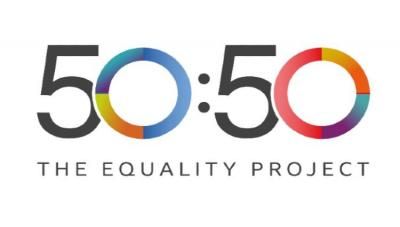- Priya Brahmbhatt-Patel
- Director of Communications
- Publication date
We recognise that to be truly inclusive and represent the communities we serve, Ofgem must champion promoting equal representation at every level – from our public messaging to how we hire, train and advance people in our own organisation and across the energy sector. This is so we have the best workforce to build back effectively from COVID-19 and answer the UK’s bold carbon emissions reduction challenge to 2035 and beyond.
That is why today I’m proud to sign Ofgem up to the BBC’s 50:50 Equality Project. We’re among the first energy sector and Civil Service organisations to pledge equal gender representation in our communications, alongside Energy UK, Energy & Utility Skills and the Office for Nuclear Regulation. We want to see others follow our lead.
The BBC 50:50 Equality Project supports organisations to create content that better reflects the world around us. For Ofgem, it will give us the methodology to measure gender representation in our external and internal communications. It’s good data like this that can help us be critical of how we represent what we aspire to be and set evidence-based targets for where we fall short.
This is not a ‘nice to have’, but fundamental to our success. If we don’t reflect the consumers we serve, we exclude people and communities of solutions they are best placed to identify. If people can’t see themselves in our make-up, we will fail to engage the immense range of talent on offer to meet our purpose.
Right now, we know Ofgem and the energy sector as a whole have some way to go on diversity, and in particular gender equality. Thirty-eight per cent of the UK’s top energy companies have only men on their board and only 14% of ‘STEM’ (science, technology, engineering and maths) managerial roles are held by women. Fewer women apply for Ofgem roles (39% women to 58% men), while an initial review of three months’ data for the BBC’s 50:50 Equality Project spotlights a 61:39 per cent men to women ratio in Ofgem communications.
So we must strive for better. At Ofgem, we’ve set ourselves challenging targets, including:
- increasing our senior women by a third (from 37% to 50%), within an overall commitment to 50% female representation across all pay grades by 2025
- attracting and hiring more women applicants by the end of 2022, from 40% today to 45%, including by reaching out to new future generations of talented women through schools and universities
- supporting training and advancement of women beyond the interview door through an Empowering Women Leadership career development programme
- supporting more flexible working including job-shares or blended home and office working, to accommodate different needs in working lives - for example as parents or care-givers
- an independent expert review by The Equal Group of our measures to guide future actions
These also form some of our broader Diversity and Inclusion Strategy initiatives, which are under constant review, as well as the excellent work of our staff networks.
We see we still have a mountain to climb and can learn from others as well as share what has worked in Ofgem. That’s why we’ve partnered with Energy UK, as the sector trade body, with sponsorship from Accenture, on an annual Inclusion, Equality & Diversity Conference to explore our collective challenges and help accelerate best practice. This is another first for Ofgem this year, and you can attend all the sessions free, online today and tomorrow (28-29 April). Over 1000 people from across the sector have signed up so far.
We’re also holding discussions starting with Energy UK and the Energy Networks Association on how we can jointly turn the outcomes of this week’s conference into action.
As a senior female leader from an ethnic minority, I’ve often struggled to see role models that look like me to aspire to. These initiatives are exactly how we empower our upcoming future stars of today, while inspiring a whole new generation of superstars to enter industries where they see people just like them excelling.
Ultimately, our representation will always equal our potential. We cannot be who we cannot see.

